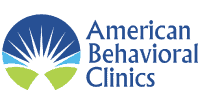
If you are struggling with a mental health challenge, such as depression, anxiety disorders, alcohol and/or drug use problems, marital problems or eating disorders, then cognitive behavioral therapy may help. While there were earlier developments, cognitive behavioral therapy was first used during World War II to help veterans deal with the war’s psychological impact on their lives. Aaron T. Beck, in the 1950s and 1960s, moved the theory forward by working with patients who had a negative self-view.
What Is Cognitive Behavioral Therapy?
Beck discovered that many people with low self-esteem constantly had negative thoughts running through their brains. Furthermore, he found that people with these negative thoughts could be taught to identify them and replace those thoughts with more positive ones. The same process may help if you find that you are always thinking negatively about yourself.
Core Principles of Cognitive Behavioral Therapy
Cognitive behavioral therapy has three core principles. They are:
- Psychological problems are based on unhelpful thinking patterns.
- At least part, if not all, unhelpful thinking patterns can be unlearned.
- Once negative thinking patterns become unlearned, a person’s mental health improves.
What Does a Cognitive Behavioral Therapy Section Look Like?
Cognitive behavioral therapy is one form of talking therapy. Usually, the therapist will ask a series of questions to help you get to your core unhealthy belief. Once the view is uncovered, the therapist and patient discuss that belief. They may role-play different scenarios, and the therapist may assign a task for the patient to carry out before their next meeting.
For example, if the patient believes that the needs of others are always more important than their own, then the therapist may ask the patient to go to a friend with a minor issue, ask the friend for their advice and leave. The therapist’s goal is to allow the patient to see that their core belief is not true and let them learn a new way of thinking.
If you think cognitive behavioral therapy may assist you, contact our office today to set up an appointment. We would love to meet with you and discuss if this is the right technique to help you improve your mental health.
Existing Patients and New Patients, Call us to schedule an appointment, get a prescription refill or just to ask a question:
New Patients ONLY - Want to contact us through a form? CLICK HERE to fill out our contact form.





